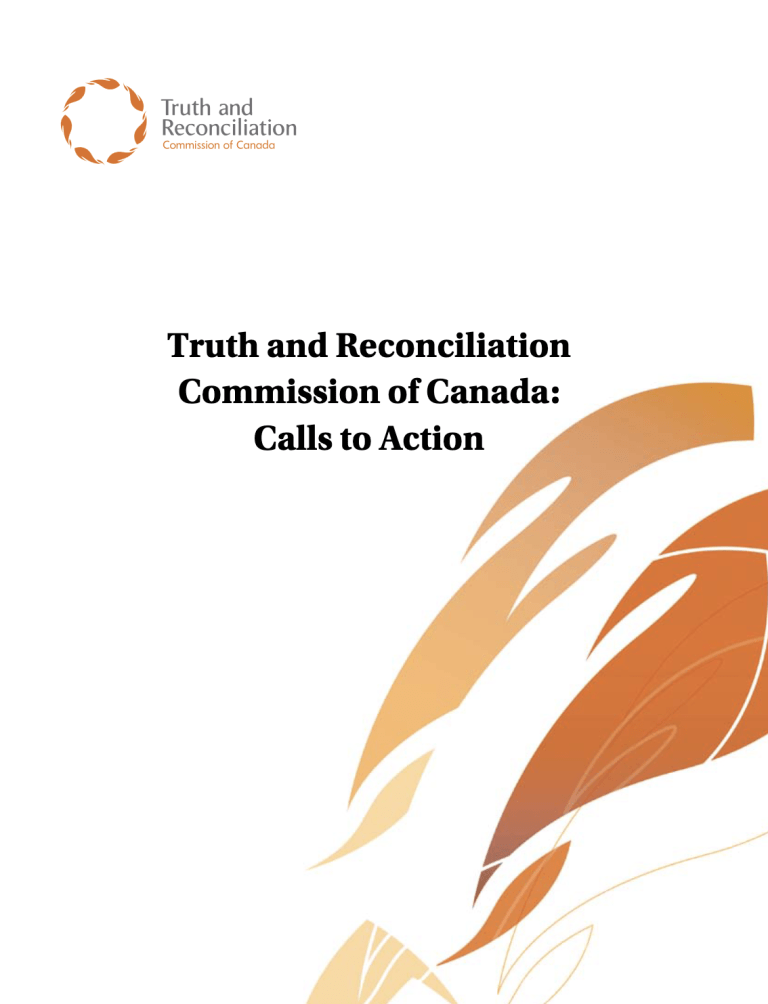77 search results
for
Decolonization and Indigenous rights
Legacy
Justice
Recommendation 31: We call upon the federal, provincial, and territorial governments to provide sufficient and stable funding to implement and evaluate community sanctions that will provide realistic alternatives to imprisonment for Aboriginal offenders and respond to the underlying causes of offending.-
Category and theme:
Audience:
Groups affected:
Legacy
Justice
Recommendation 35: We call upon the federal government to eliminate barriers to the creation of additional Aboriginal healing lodges within the federal correctional system.-
Category and theme:
Groups affected:
Legacy
Justice
Recommendation 41: We call upon the federal government, in consultation with Aboriginal organizations, to appoint a public inquiry into the causes of, and remedies for, the disproportionate victimization of Aboriginal women and girls. The inquiry’s mandate would include:- Investigation into missing and murdered Aboriginal women and girls.
- Links to the intergenerational legacy of residential schools.
-
Category and theme:
Audience:
Legacy
Justice
Recommendation 42: We call upon the federal, provincial, and territorial governments to commit to the recognition and implementation of Aboriginal justice systems in a manner consistent with the Treaty and Aboriginal rights of Aboriginal peoples, the Constitution Act, 1982, and the United Nations Declaration on the Rights of Indigenous Peoples, endorsed by Canada in November 2012.-
Category and theme:
Audience:
Groups affected:
Reconciliation
Canadian governments and the United Nations Declaration on the Rights of Indigenous People
Recommendation 43: We call upon federal, provincial, territorial, and municipal governments to fully adopt and implement the United Nations Declaration on the Rights of Indigenous Peoples as the framework for reconciliation.-
Category and theme:
Audience:
Groups affected:
Reconciliation
Canadian governments and the United Nations Declaration on the Rights of Indigenous People
Recommendation 44: We call upon the Government of Canada to develop a national action plan, strategies, and other concrete measures to achieve the goals of the United Nations Declaration on the Rights of Indigenous Peoples.-
Category and theme:
Audience:
Groups affected:
Reconciliation
Royal Proclamation and Covenant of Reconciliation
Recommendation 45: We call upon the Government of Canada, on behalf of all Canadians, to jointly develop with Aboriginal peoples a Royal Proclamation of Reconciliation to be issued by the Crown. The proclamation would build on the Royal Proclamation of 1763 and the Treaty of Niagara of 1764, and reaffirm the nation-to-nation relationship between Aboriginal peoples and the Crown. The proclamation would include, but not be limited to, the following commitments:- Repudiate concepts used to justify European sovereignty over Indigenous lands and peoples such as the Doctrine of Discovery and terra nullius.
- Adopt and implement the United Nations Declaration on the Rights of Indigenous Peoples as the framework for reconciliation.
- Renew or establish Treaty relationships based on principles of mutual recognition, mutual respect, and shared responsibility for maintaining those relationships into the future.
- Reconcile Aboriginal and Crown constitutional and legal orders to ensure that Aboriginal peoples are full partners in Confederation, including the recognition and integration of Indigenous laws and legal traditions in negotiation and implementation processes involving Treaties, land claims, and other constructive agreements.
-
Category and theme:
Audience:
Groups affected:
Reconciliation
Royal Proclamation and Covenant of Reconciliation
Recommendation 46: We call upon the parties to the Indian Residential Schools Settlement Agreement to develop and sign a Covenant of Reconciliation that would identify principles for working collaboratively to advance reconciliation in Canadian society, and that would include, but not be limited to:- Reaffirmation of the parties’ commitment to reconciliation.
- Repudiation of concepts used to justify European sovereignty over Indigenous lands and peoples, such as the Doctrine of Discovery and terra nullius, and the reformation of laws, governance structures, and policies within their respective institutions that continue to rely on such concepts.
- Full adoption and implementation of the United Nations Declaration on the Rights of Indigenous Peoples as the framework for reconciliation.
- Support for the renewal or establishment of Treaty relationships based on principles of mutual recognition, mutual respect, and shared responsibility for maintaining those relationships into the future.
- Enabling those excluded from the Settlement Agreement to sign onto the Covenant of Reconciliation.
- Enabling additional parties to sign onto the Covenant of Reconciliation.
-
Category and theme:
Audience:
Groups affected:
Reconciliation
Royal Proclamation and Covenant of Reconciliation
Recommendation 47: We call upon federal, provincial, territorial, and municipal governments to repudiate concepts used to justify European sovereignty over Indigenous peoples and lands, such as the Doctrine of Discovery and terra nullius, and to reform those laws, government policies, and litigation strategies that continue to rely on such concepts.-
Category and theme:
Audience:
Groups affected:
Reconciliation
Settlement agreement parties and the United Nations Declaration on the Rights of Indigenous Peoples
Recommendation 48: We call upon the church parties to the Settlement Agreement, and all other faith groups and interfaith social justice groups in Canada who have not already done so, to formally adopt and comply with the principles, norms, and standards of the United Nations Declaration on the Rights of Indigenous Peoples as a framework for reconciliation. This would include, but not be limited to, the following commitments:- Ensuring that their institutions, policies, programs, and practices comply with the United Nations Declaration on the Rights of Indigenous Peoples.
- Respecting Indigenous peoples’ right to self-determination in spiritual matters, including the right to practise, develop, and teach their own spiritual and religious traditions, customs, and ceremonies, consistent with Article 12:1 of the United Nations Declaration on the Rights of Indigenous Peoples.
- Engaging in ongoing public dialogue and actions to support the United Nations Declaration on the Rights of Indigenous Peoples
- Issuing a statement no later than March 31, 2016, from all religious denominations and faith groups, as to how they will implement the United Nations Declaration on the Rights of Indigenous Peoples.
-
Category and theme:
Groups affected:
